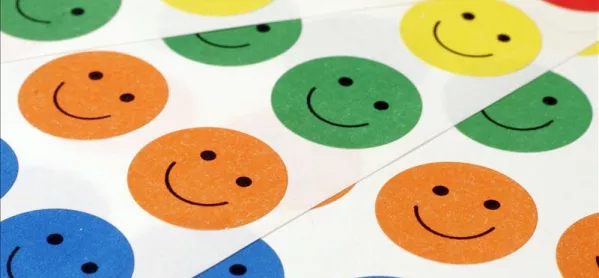No matter how long you’ve been in the profession, I’ll bet you were still wet behind the ears when you first heard the advice “Catch them being good” - an approach to behaviour management in which teachers focus on rewarding positive behaviour as a way to encourage pupils to repeat these behaviours.
This idea is appealing; it makes intuitive sense and seems like something that would be straightforward to implement.
To be clear, I’m not against this strategy, but do believe it is limiting - we could and should do better in our approaches to improving children’s behaviour.
In schools, we set a benchmark of acceptability. It is inevitable that some children will at times exhibit behaviour that falls below this line. The benchmark is, of course, arbitrary and bound to be enforced inconsistently to a greater or lesser extent by different adults in the same school, no matter how hard we try.
Rewarding good behaviour
The main reason why I think “catch them being good” is limiting is that it doesn’t reflect the developmental differences present in all the children you teach. Some children will habitually remain well above the minimum level of acceptability with ease.
School is a place where they routinely experience success and affirmation - they get implicit and explicit messages all the time that they belong and are valued members of the community. We could catch them being good all day long; indeed, I am often asked why we shouldn’t reward children for always doing the right thing. Feel free, but if that is the basis of your behaviour policy, then that is unlikely to hit the mark with the children whose behaviour needs to improve.
Meanwhile, some children will struggle some of the time to stay on the right side of our line of acceptability (no child is poorly behaved all of the time). Your efforts will, I hope, lead to improvements in their behaviour, but if your policy reserves praise, recognition and reward (I’ve written previously about my issues with rewards) only for those who find it easiest to behave well in your school then I think you’re missing a trick.
Think about how rewards work for academic progress. A child who goes from a GCSE grade 4 to a grade 7, or from 4/20 on average in the weekly spelling test to 12/20, deservedly receives recognition for their progress. We don’t, I hope, reserve praise and recognition exclusively for those children achieving grade 7 or better, or 12/20 or better on the spelling test, and you can immediately see how limiting this approach would be.
The major barrier that I believe we face when adopting the approach of recognising progress in behaviour is the concern that we are being positive with a child who deserves punishment. This emotion is a powerful one and needs to be managed by a solution-focused mentality that looks to elicit what is working well for that child and to encourage or provide more of the conditions for that to flourish.
Recognising improvements in behaviour allows the child to experience some success and to feel that their efforts are bearing fruit, and this is equally true of the adults working with the child, too. This will encourage them to persevere and build on those successes, no matter how seemingly small they might be. So, next time you hear “catch them being good”, try replacing it with “catch them being better”.
Jarlath O’Brien works in special education in London. He is the author of Better Behaviour - a guide for teachers, published by SAGE

